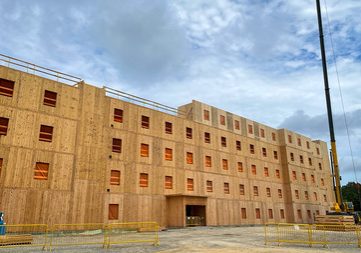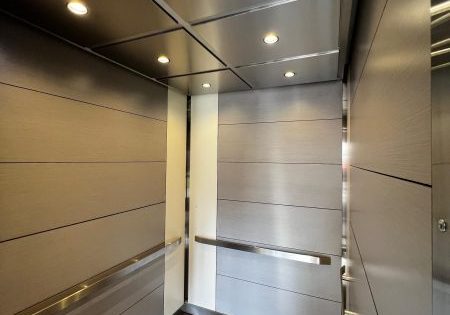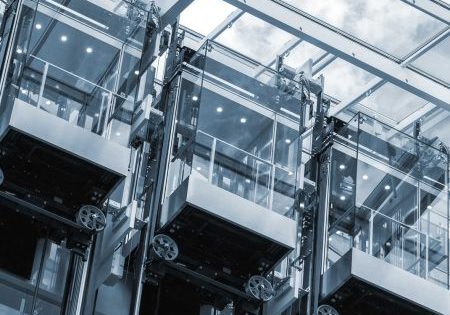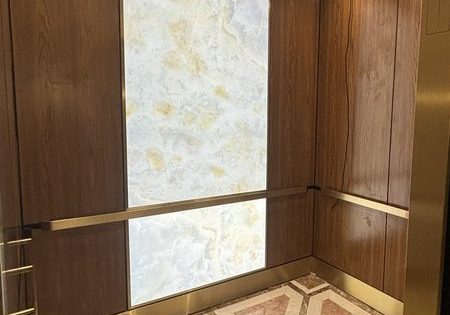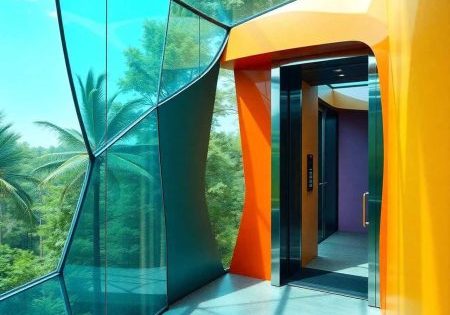The Waiting Game
Jul 1, 2025
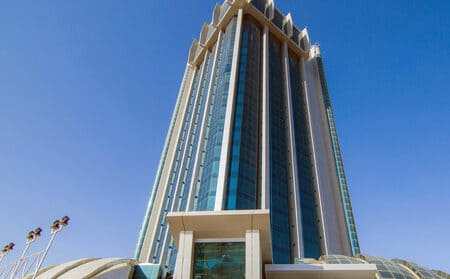
How civil war is stifling growth of Sudan’s VT market.
by Shem Oirere, EW Correspondent
Many countries in Africa have reported a major rebound of their construction markets from the COVID-19 pandemic with notable growth in urbanization and associated residential, commercial and industrial buildings. This growth triggered an increase in consumption of vertical-transportation (VT) solutions. Since April 2023, the situation in Sudan has been a tale of annihilation of landmark infrastructure assets and a stifling of economic growth because of the deadly civil war in the country.
A recent report by Knight Frank, the London, U.K.-based global real estate consultancy and estate agency, says more than 95% of African markets the company tracked in the last year “have fully rebounded from the COVID-19 pandemic, with most now matching pre-pandemic figures in transactions, prime rents and average yields across major real estate sectors.” But this is not true of Sudan.
The country’s former imposing tall buildings, especially in the capital Khartoum, have been bombed — some to rubble — in the civil war, which pits the Sudanese Armed Forces (SAF) and the Rapid Support Forces (RSF), a paramilitary force formerly operated by the government of Sudan that grew out of, and is primarily composed of, the Janjaweed militias associated with the internationally condemned war crimes committed during the war in Darfur between 2003 and 2010. The Darfur conflict, which began in February 2003, pitted the government against the Sudan Liberation Movement and the Justice and Equality Movement rebel groups that accused state authorities of oppressing the region’s non-Arab population.
A few new construction projects in Khartoum may have also been put on hold or canceled altogether, hence impacting the performance of the commercial, residential and industrial real estate market segments in the short term.
“Most of the clashes between the SAF and RSF of fighting were in cities with populations exceeding 100,000 people,” said a recent report by the Norwegian Refuge Council. The combatants, the report said:
“have used heavy artillery in densely populated urban areas, and many cities had been heavily bombarded by July (2024). It was estimated that more than 420 buildings in the Khartoum state had been destroyed, including critical infrastructure and hundreds of homes in Khartoum, forcing residents to find shelter elsewhere. Urban warfare is ongoing throughout cities in Khartoum state, with aerial bombardments, ground battles and increasing usage of drones, and both the RSF and SAF are heavily controlling the movement of people and materials in and out of the neighborhoods.”
The battered and war-ravaged city of Khartoum, which sits at the confluence of the White Nile that flows north from Lake Victoria and the Blue Nile that flows west from Lake Tana in Ethiopia, has experienced destruction of hospitals, government buildings, hotels and landmark private commercial infrastructure. The destruction spread across the metropolis made up of Khartoum proper that is linked via bridges to Khartoum North and Omdurman.
Several buildings that supported the VT service and maintenance market segment in Sudan, especially commercial and government assets, have been severely damaged in the ongoing war, a trend likely to suppress demand.
For instance, the middle tower of the National Telecommunication Corp. (NTC) tower complex was extensively damaged when it caught fire triggered by strikes by the combatants.
The construction of the 29-story tower, which is Sudan’s tallest building at 427 ft, was completed in 2009 under a contract by Türkiye’s AINA International.
Elsewhere, the heavy shelling that has rocked Khartoum has destroyed the Greater Nile Operating Co. (GNPOC) tower another landmark building in the city. The 18-story building with a steel frame sits on 1400 m2 of total built-up area.
More destruction has been reported at the country’s airports with disruption of operations of key components such as runways, control towers and offices.
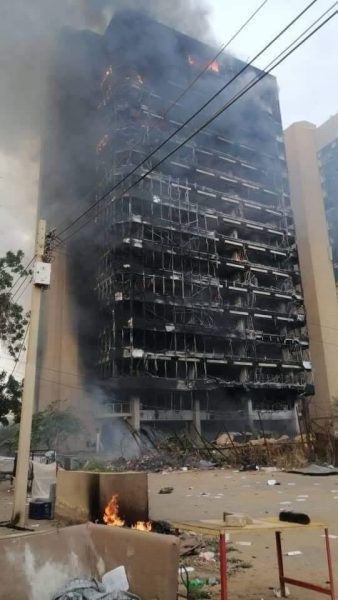
Over the last five years, Sudan has been developing the Khartoum International Airport located 24.8 mi. from Khartoum’s city center to replace the current Khartoum International Airport within the heart of this city of 6.3 million people.
The project, which was initiated by the government of Sudan and its Civil Aviation Authority, is expected to add to the uptake of VT solutions such as elevators to accommodate heavy traffic, accessing terminal buildings and air traffic control towers, as well as service and freight elevators.
The airport will also feature additional facilities that require lifts and escalators for ease of movement such as a conference center, a business center, an administration building, an airport hotel and a shopping mall.
A few months prior to the April 2023 outbreak of the civil war, Housing Finance Africa, an independent think tank working to support and grow housing markets in Africa, had espoused the potential business opportunities arising from the rebuilding of Khartoum city, “which enjoys distinct geographical features that could offer fertile ground for real estate investors.”
Moreover, a report by the African Development Bank (AfDB), a multilateral development finance institution that lends to African governments and private companies investing in the continent, said:
“Despite limited information coming from the conflict-affected areas, infrastructure like roads, bridges, power and telecommunication network and government institutions has been destroyed, hindering trade, provision of essential services such as education and health and other economic activities.”
The real estate growth opportunities in Sudan’s cities started emerging after the U.S. led its global business partners in lifting economic sanctions that had weighed heavily on the country for more than 20 years after the previous government of deposed President Omar Bashir committed crimes against humanity during the armed conflict in the Darfur region.
The economic sanctions slowed investments in the construction industry, as well as in the importation of critical building industry materials and equipment.
Nevertheless, with the lifting of the sanctions in 2017, the country’s real estate market, including the commercial, residential and industrial segments, was expected to grow with the backing of private-sector investments, an anticipation now placed on the back burner by the raging civil conflict.
Several global VT market players have been active in Sudan and are expected to pick up contracts for the rebuilding of the country if, and when, the civil war ends. These companies include Schindler, Fujitec, TK Elevator, KONE, Otis, Hyundai and Mitsubishi.
Get more of Elevator World. Sign up for our free e-newsletter.



